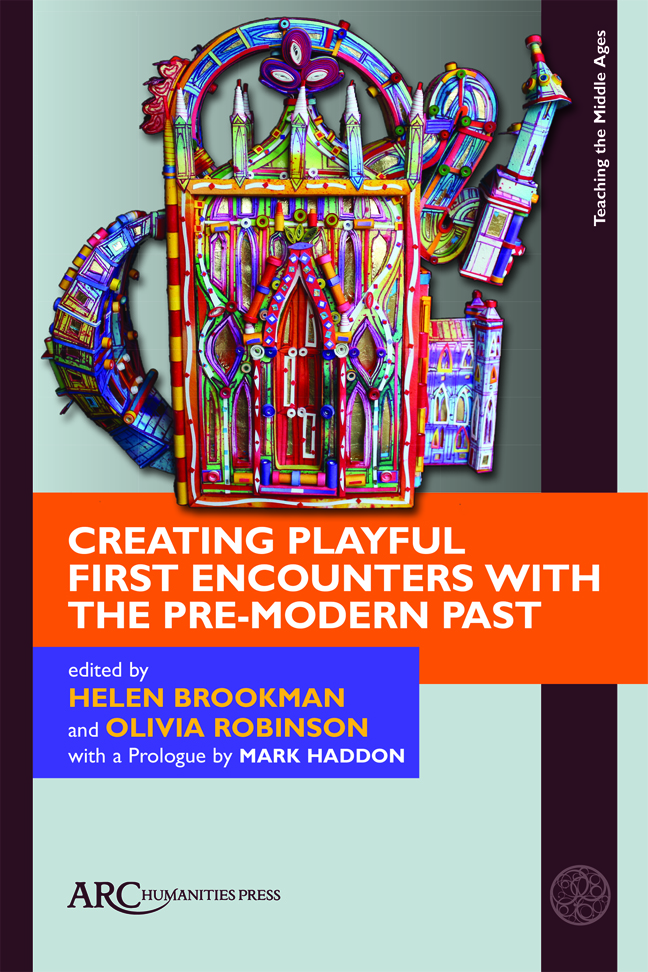1 - Gamifying the Canterbury Tales 1: Adopt- a- Pilgrim, Harry Bailley's Game, and an RPG Canterbury Tales
Published online by Cambridge University Press: 17 February 2024
Summary
CHAUCER'S CANTERBURY TALES is structured like a role playing game (RPG): it features characters who, within the Frame Tale, engage in a quest, “combat” one another at times, and negotiate an array of challenges under the watchful eye of a referee who has set specific rules for success and a prize for winning the game he has proffered. In Chaucer's General Prologue, the opening section of the Canterbury Tales, Chaucer the Pilgrim Narrator describes a group of “about” twenty nine pilgrims who have assembled at the Tabard Inn to walk from Southwark, London, to Canterbury to visit the shrine of St. Thomas à Becket, and the Tabard's gregarious Host, Harry Bailley, creates a tale telling game to pass the time during the trip to Canterbury and back. The Host proposes, if they accede to his judgement, that each pilgrim tells two tales on the way to Canterbury and two back:
And which of yow that bereth hym best of alle,
That is to seyn, that telleth in this caas
Tales of best sentence and moost solaas,
Shal have a soper at oure aller cost
Heere in this place, sittynge by this post,
Whan that we come agayn fro caunterbury.
In other words, whoever tells the story of “best sentence [meaning] and moost solaas [pleasure]” wins a free dinner on the Host when the pilgrim party returns to the Tabard Inn. Of course, this presents important questions for the reader: How are we to understand “sentence” and “solaas” as their nuances develop across multiple tales? What would it mean to “win” the tale telling contest, and how would you decide? Because Chaucer never completed The Canterbury Tales, we have no definitive answer, but I thought creating a pedagogical mechanism to do so might make for an interesting class.
The classroom presents a wonderful opportunity to approach this challenge every time we teach a Chaucer course, and the framework I describe here can be adapted for other literary or historical courses. I outline in this essay the first in a series of pedagogical experiments I have offered in my Chaucer classes at the University of Alaska Anchorage that allows each class to try to answer the question of which tale offers the “best sentence and moost solaas.”
- Type
- Chapter
- Information
- Publisher: Amsterdam University PressPrint publication year: 2023

